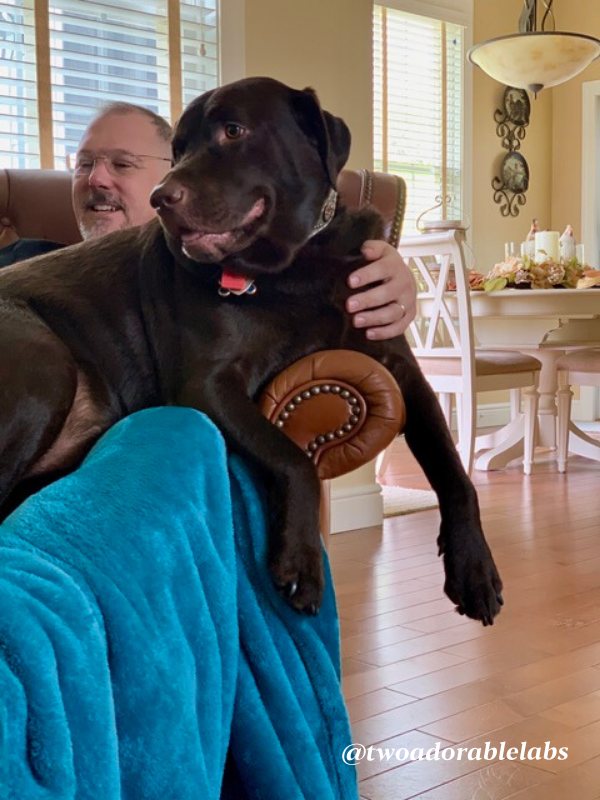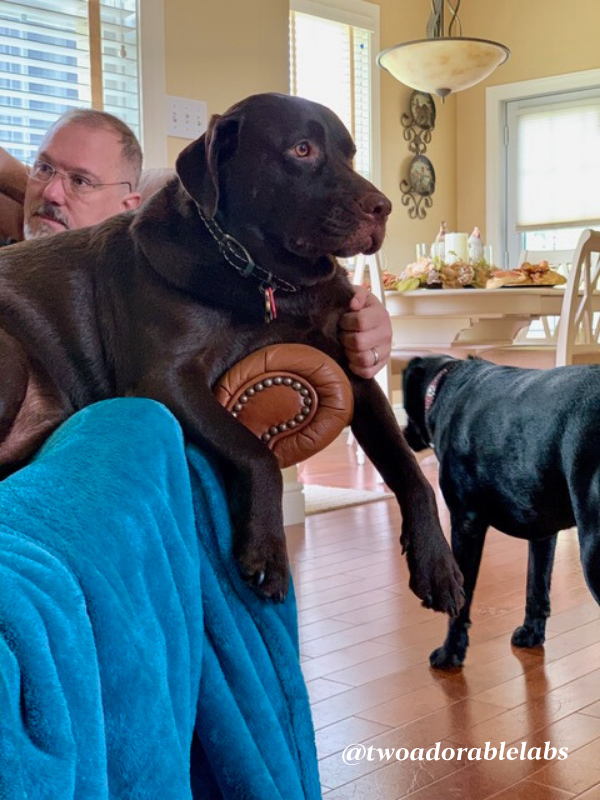Can Dogs Get Skin Cancer?
Can dogs get skin cancer? The answer is yes! As with humans, sun exposure is a factor in dog skin cancers. Even though most pups are covered in hair, the sun can still penetrate through the coat and cause damage to sparsely protected areas like the nose and ears. Hairless dogs and short-haired breeds are especially prone to excessive sun exposure. We spent the majority of the weekend out in the beautiful weather working around the house and playing games in the yard with Jake and Maggie. When the weather gets hot, I keep Jake and Maggie out for shorter periods of time unless they are in the garage with us because the sun can be brutal on them.
Typical Sunday morning...
Do Jake and Thomas have the same look? LOL


This type of cancer affects pigmented cells in the skin known as melanocytes. While many tumors that develop in these cells are benign, others grow quickly and metastasize to other areas of the body like the liver and/or lungs. Benign melanomas, known as melanocytomas, are typically found on areas of the dog’s skin that have hair, whereas most malignant melanomas occur on or in the mouth. Trauma and compulsive licking may contribute to the rapid cell growth that causes melanomas, but genetics also seems to play a role.
Squamous Cell Carcinoma

It turns out that the behavior of a melanoma is highly dependent on the region of the body where it develops. There are several areas that grow particularly invasive melanomas, which are not only locally destructive but spread cancer to the lung, liver and other areas. The areas where melanoma development is particularly threatening include:
Malignant Melanoma
• The mouth, lips, oral cavity
• The toe or foot
• The eye
• Haired skin
Common symptoms of squamous cell carcinomas in dogs include:
When mast cell degranulation occurs, some chemicals and compounds can go into the bloodstream and cause problems elsewhere. Ulcers may form in the stomach or intestines, and cause vomiting, loss of appetite, lethargy, and melena (black, tarry stools that are associated with bleeding). Less commonly, these chemicals and compounds can cause anaphylaxis, a serious, life-threatening allergic reaction. Although very uncommon, MCTs of the skin can spread to the internal organs, causing enlarged lymph nodes, spleen, and liver, sometimes with fluid build-up (peritoneal effusion) in the abdomen, causing the belly to appear rounded or swollen.
Maggie makes her own rules 🙂


You Might Also Like
What To Do If Your Dog Gets Bit By A Venomous Spider
Happy Wednesday, everyone! I was sitting on our back patio a few nights ago watching Jake watch a spider crawl in front of him. This gave me an idea for a blog post on spiders and What To Do If Your Dog Gets Bit By A Venomous Spider. Fortunately, Jake didn't make a...
Pet Cloning: What Is It And How Does It Work?
Happy Wednesday, everyone! Pet Cloning…What is it, and how does it work? I recently found an article in Modern Dog Magazine, “Meet Mella, The Cloned Winery Dog,” about how a California winery spent $50,000 cloning their dog. Before reading the article, I had two...



0 Comments